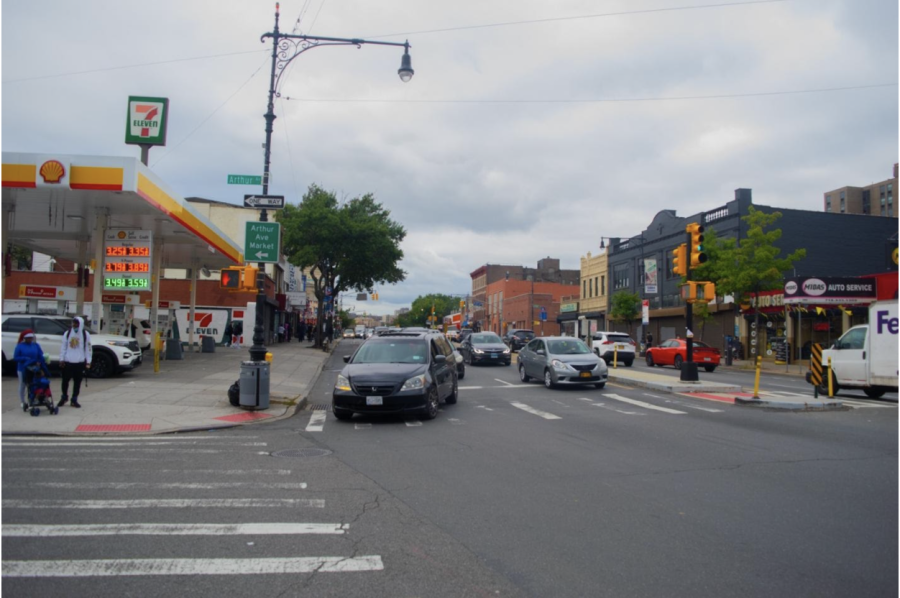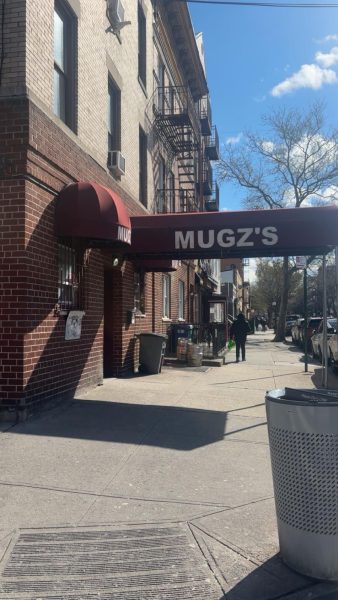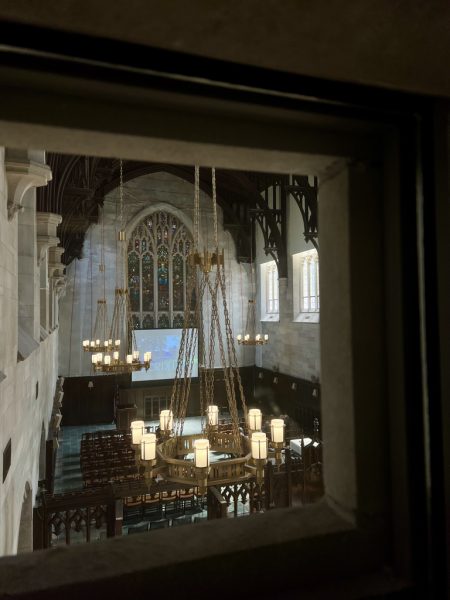Fordham Business Development Collaboratory Creates a Union of Students and Local Business
Rich Shrestha, FCRH ’22, was bothered. Stuck at home in Connecticut because of the pandemic, he yearned to do something good.
Shrestha wanted to use this time — which was unbelievably free for someone who usually juggles so much at once — to do something worthwhile. At a time of so much loss and suffering, he wanted to create an opportunity for growth and hope.
“You want to feel like you’re making a difference,” he said.
Teaming up with one of his mentors at Fordham, Sadibou Sylla, who serves as the associate director of the Social Innovation Collaboratory, Shrestha founded the Fordham Business Development Collaboratory (FBDC), a group of Fordham students who build partnerships with and consult local businesses. The Social Innovation Collaboratory is a program within the Gabelli School of Business and is the larger entity of which FBDC is a part.
Like so many things in the past year and a half, FBDC cannot be fully understood or appreciated without the context of the ongoing COVID-19 pandemic. Its very creation was inspired and informed by it. Born amidst the entangled global health and economic crises, FBDC sought to help local businesses navigate this time of financial burden and equip themselves to thrive in an increasingly digital world, said Shrestha.
This endeavor was an opportunity to help one of the communities hit hardest by the pandemic. The Bronx had the highest rate of hospitalizations and deaths among the five boroughs. It was devastated economically too. More than 70% of the Bronx’s labor force worked in face-to-face jobs and industries considered essential. In May of 2020, the unemployment rate had reached its peak at 25% — the highest among the boroughs.
Shrestha stressed that he wanted to do something impactful with all the time he had. As FBDC transformed from an exciting idea in his head into a real-life program at a university, Shrestha and his student colleagues began to develop ways to actually help businesses in the Bronx — the home of their university that still found itself experiencing the effects of the pandemic.
“At the root of this is serving your community, being part of your community,” Shrestha said.
FBDC is also grounded in the Jesuit tradition of Fordham University. As an emphasis on promoting justice, championing human rights and attending to the most vulnerable are pillars of the Jesuit mission, so too are they intertwined with the mission of FBDC, said Sylla.
An immigrant from Senegal raised in the Bronx, Sylla expressed his commitment to providing assistance to the local community in a time of such dire need.
FBDC, in just its first year, worked with a wide range of clients, from local restaurants to cleaning services. As a student-led program with members spanning all disciplines, from both Fordham College at Rose Hill and the Gabelli School of Business, the FBDC offers free assistance to New York businesses with five teams at the forefront, said Shrestha.
The marketing team provides its clients with social media strategies and market research while the business development team assists clients with their overall business strategies and collaborates on possible business plans. The program’s web development team is more hands-on in that they help their clients with their online presence, sometimes even creating the websites for them, explained Shrestha. Their research team gives insight into government regulations and legal-based issues. During the pandemic, this team helped businesses stay up to date with COVID-19 guidelines and apply for sidewalk dining permits. Finally, the video campaign team works to produce videos — in English and Spanish — that exemplify to prospective clients what they have to offer.
The interdisciplinary approach of FBDC is crucial to the way they want to help these businesses, Sylla said. “I think we’ve been formatted to be an expert in one field,” he said. “But we know that problems don’t just show up in one field.”
My Money Workshop is one of the local businesses that FBDC has assisted in the past year. Their executive director, Gineyda Diaz, said the students helped them come up with a solution to one of their critical problems.
My Money Workshop is a nonprofit that partners with other institutions like schools, colleges and nonprofits to create customized financial literacy programming that answers the needs of those specific people. FBDC reached out to them, and the nonprofit asked for their help in coming up with a better way to price their services in a tiered system. The members of FBDC recommended that My Money Workshop create the tiers by content, forming different sets of curriculums for different tiers. The client then pays a membership fee based on how long they want to continue this service.
Diaz said that collaborating with the students was very helpful. “It was lovely working with them,” she said. “Being able to just rely on having the expertise of the students and their ideas, it was perfect.”
While the collaboratory was established to assist local Bronx businesses, it also acts as a bridge between the Fordham University community and the Bronx. It offers a concrete way for students to engage with the local community and create lasting relationships. Diaz said that she was excited to work with Fordham students because of their location in the Bronx, a place that her nonprofit works with a lot.
“I think that relationship essentially is one of those that we want to continue to foster,” she said.
Kelly Mahaney, GSB ’22, the marketing co-director of FBDC, emphasized this connection that is built through FBDC and how it can show students that Fordham is not separate and detached from the surrounding community.
“It’s not just us trying to come in, one and done,” she said. “But it’s about the furthering of that relationship.”
As Shrestha said, at the heart of FBDC is the service to the community and being part of that larger community. His vision — and that of all the program’s members — is to make an impact on the world around them.
He imagined a way to do something good — something that benefitted not only the local businesses consulted but both the community at large and the students involved.
“We can all be changemakers,” he said.










































































































































































































